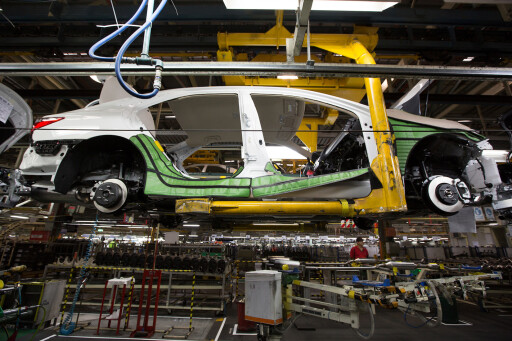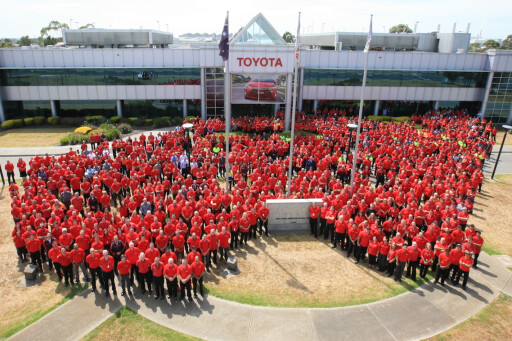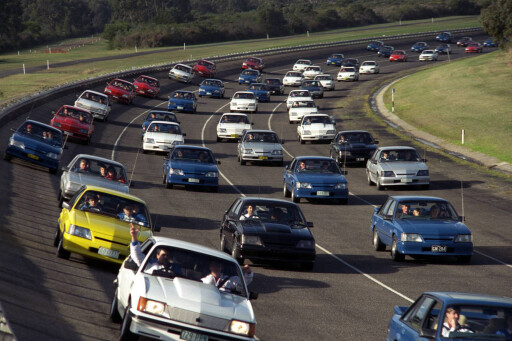
Australian prime minister Malcolm Turnbull has blamed local buyers for the demise of the local car industry, following Toyota’s Melbourne factory closure yesterday after 54 years in operation and less than three weeks before Holden shutters its Adelaide facilities.
Mr Turnbull claimed yesterday that “changes in market taste” led Holden and Toyota to call it quits on local manufacturing, adding that “people stopped buying the sedans being made in Australia” and distancing the Federal Government from blame.
“The manufacturers who’ve progressively closed their operations in Australia have made it clear it’s not because of failure of government subsidies,” he told local media.
 However, his comments have drawn the ire of Shadow Minister for Industry and Innovation Kim Carr, who under a Labor government between 2007 and 2013, had previously secured Holden’s future in Australia until 2022.
However, his comments have drawn the ire of Shadow Minister for Industry and Innovation Kim Carr, who under a Labor government between 2007 and 2013, had previously secured Holden’s future in Australia until 2022.
In 2013 then-Holden managing director Mike Devereux announced the brand would build a new Commodore and also a medium SUV – now revealed to be the forthcoming Equinox – at the Adelaide plant. It would contradict Mr Turnbull’s assertion that manufacturers only wanted to build sedans locally, given that Holden already had an SUV prepared.
“The consequences of Malcolm Turnbull and Tony Abbott’s determination to close Australia’s automotive industry are plain to see,” Mr Carr said in a statement.
“Their actions show the only jobs they’ve ever cared about is their own. This disaster did not have to happen. The car makers are closing because the Liberal Government goaded them to leave, not because the industry was unviable.”
 Mr Carr pointed to University of Adelaide modelling that placed 200,000 jobs at risk across a broader supplier network as a result of the closure of local manufacturing, with the country’s GDP taking a $29 billion hit.
Mr Carr pointed to University of Adelaide modelling that placed 200,000 jobs at risk across a broader supplier network as a result of the closure of local manufacturing, with the country’s GDP taking a $29 billion hit.
Australian Bureau of Statistics (ABS) data has further shown a reduction of 30,000 jobs in the manufacturing sector over nine months to August 2017, including most recently the sale of seat manufacturer Futuris – Australia’s largest single automotive supplier – to a US buyer and the relocation of its headquarters from Melbourne to Detroit.
MOTOR understands that while Holden executives did not publicly blame the Federal Government for a lack of interest in saving local manufacturing, the General Motors brand did require additional government co-investment in order to continue its plan to build the Commodore and Equinox in Adelaide until 2022.
 In 2014, prior to the announcements by Holden that it would leave Australia, Acting Prime Minister Tanya Plibersek asked then-Treasurer Joe Hockey in parliamentary question time whether he considered Holden’s $32.7 billion contribution to economic activity, $21b in payments to other local businesses and $1.8b in government co-investment as a good return on investment.
In 2014, prior to the announcements by Holden that it would leave Australia, Acting Prime Minister Tanya Plibersek asked then-Treasurer Joe Hockey in parliamentary question time whether he considered Holden’s $32.7 billion contribution to economic activity, $21b in payments to other local businesses and $1.8b in government co-investment as a good return on investment.
Mr Hockey later in parliament made his feelings clear: “There has been no shortage of money that has been going to the motor manufacturing industry, and if all those assistance measures have worked so well in the past, why have Ford and Mitsubishi left Australia?”
“There would be a hell of a lot of other businesses and foreign-owned businesses that would love to remit taxpayers’ money to head offices in Detroit or London or Tokyo or anywhere else,” he also said.
Following Toyota’s closure of its manufacturing operations yesterday, Holden will shutter its factory on October 20.

COMMENTS